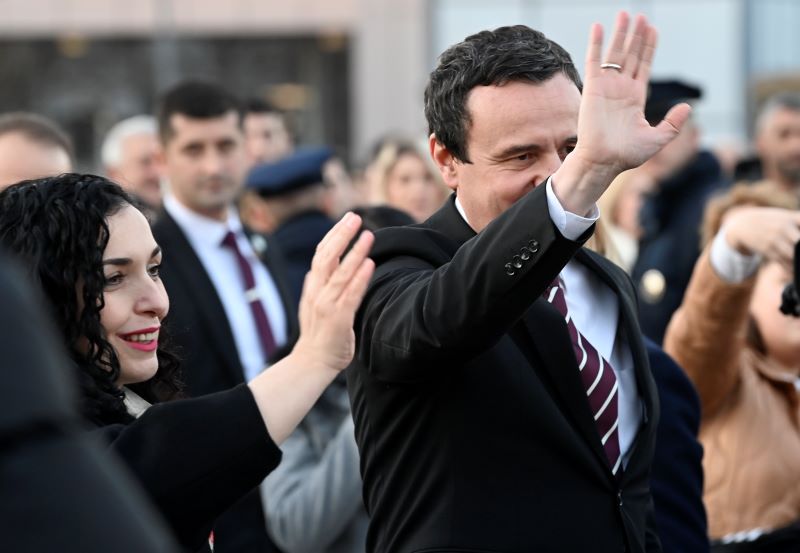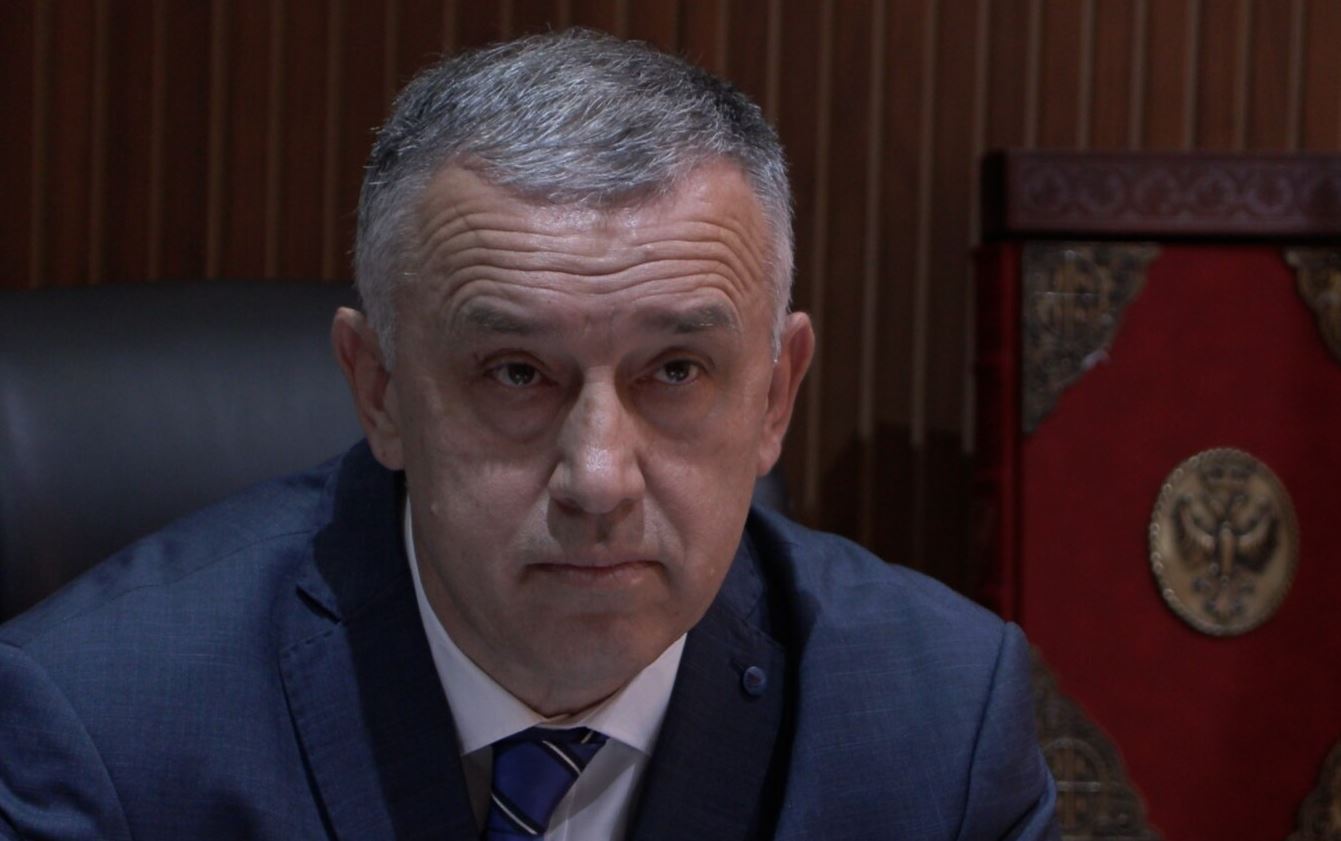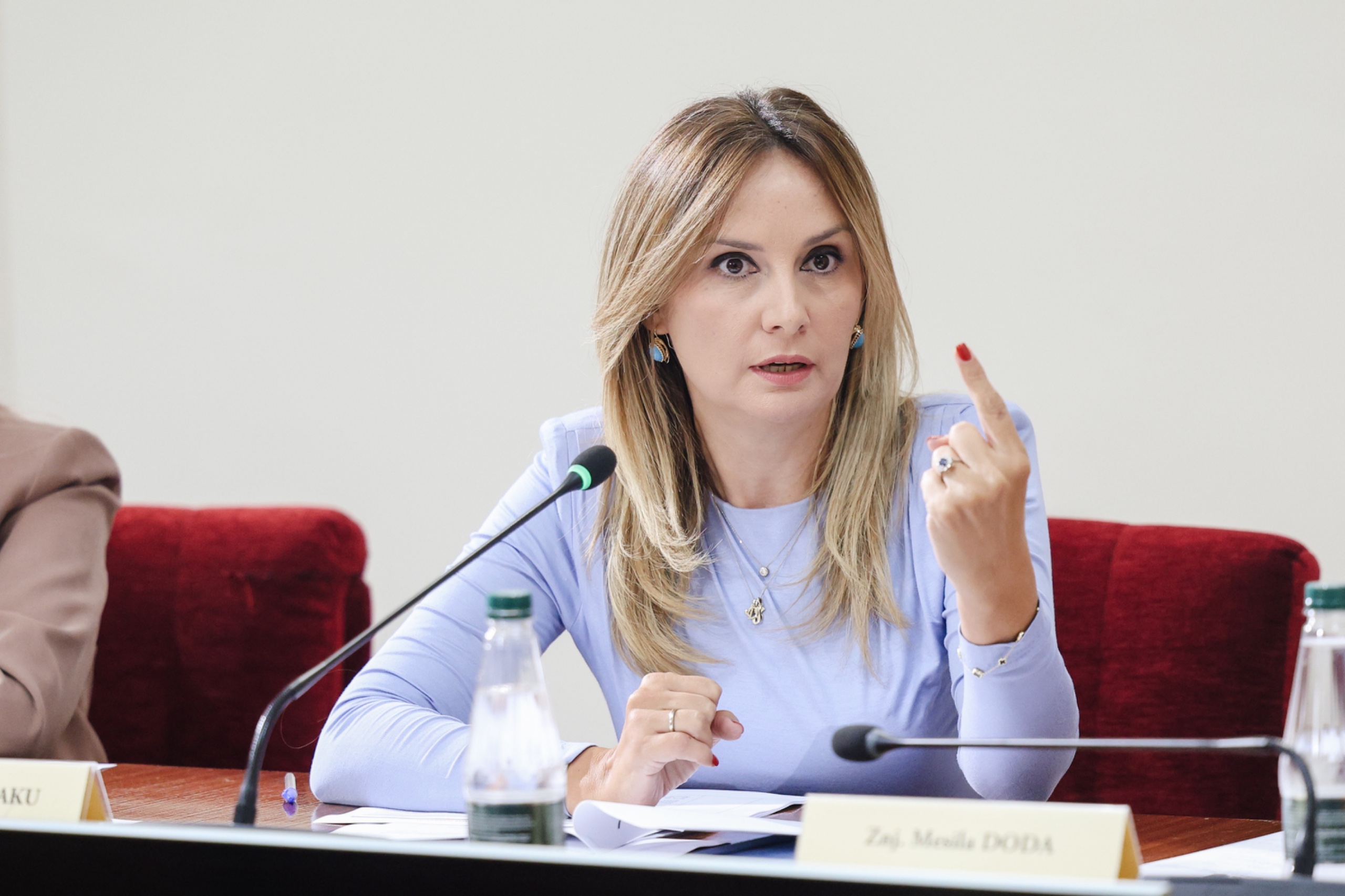Kosovo’s President Vjosa Osmani underscored the critical importance of upholding constitutional patriotism, strengthening international alliances, advancing dialogue with Serbia, and advocating for the rights of Albanians in the region in her yearly address to the assembly.
In her annual parliament address on Thursday, Kosovo President Osmani highlighted the importance of constitutional patriotism and safeguarding alliances with nations that contributed to Kosovo’s creation and state-building.
“At the heart of constitutional patriotism lies the belief that our Constitution is more than a legal document. We must remain united in defending our Constitution, which remains the most modern and advanced in Europe concerning human rights, particularly for non-majority communities.”
Osmani stated that weakening alliances is a strategic mistake while maintaining them is not a sign of submission.
“No nation has succeeded alone, and no state thrives in isolation. Political history teaches us that weakening alliances is a strategic mistake. Working with those who helped secure freedom and statehood is never submission or blackmail,” the President said.
“Jeopardizing alliances, gambling with them, or undermining them compromises the self-defense of the republic,” Osmani further stressed, adding that she has never “understood nor condoned the mockery made at the expense of allies, the attacks on them, or the misuse of their names for political gain.”
In 2020, Vjosa Osmani broke ties with her party, the Democratic League of Kosovo, LDK, instead aligning with Vetevendosje’s Albin Kurti. Her decision was prompted after the LDK, as the junior coalition partner, initiated and passed a no-confidence vote against Kurti’s government during the COVID-19 pandemic. When Osmani refused to support an LDK-led cabinet in early June, she was removed from all party positions. Later that year, she launched her own political initiative, Guxo, which ran in coalition with Vetevendosje in the February 14, 2021 elections. Osmani subsequently became Kosovo’s fifth head of state in the 13 years since its independence.

However, tensions between Osmani and Kurti emerged last spring over disagreements about the government’s uncoordinated actions with allies, as well as failures in Kosovo’s bid for membership in the Council of Europe and issues related to the dialogue with Serbia.
The opposition Democratic Party of Kosovo, PDK, and the Alliance for the Future of Kosovo, AAK, boycotted President Osmani’s address, citing dissatisfaction with the President’s progress in achieving international representation for Kosovo.
The President, whose five-year term ends in April 2026, noted that a forward-looking vision has always distinguished true leaders.
“What best demonstrates the maturity of our state is the moment when we ensure our policies reflect what is right, not what is politically convenient, what is necessary, not what sounds appealing, what serves the state’s long-term interests, not what benefits a single election cycle, what elevates the state, not merely poll numbers,” Osmani stressed.
Addressing MPs, Osmani also brought attention to the violation of the rights of Albanians in Serbia and North Macedonia, for which she said international reaction has been lacking.
“In Presheve, Medveda, and Bujanovac, ethnic cleansing through address passivation—a violation confirmed by the European Parliament and the U.S. State Department has now received the endorsement of Serbia’s highly politicized courts, which sustain the discrimination,” Osmani stated.
“At the same time, we observe violations of the rights of Albanians in North Macedonia, particularly those secured by the Ohrid Agreement,” she added.
Osmani also expressed her commitment to strengthening and cooperating for Kosovo’s expedited membership in NATO.
“The efforts of Serbia and its backers in the Kremlin to undermine Kosovo’s internal stability and international position are increasing, as is our dedication and mobilization to prevent them. The terrorist act in Banjska on September 24, 2023, was the clearest evidence of this,” Osmani noted.
Regarding the EU-mediated dialogue with Serbia, the President added that it has been completely “unbalanced and unfair to Kosovo,” with bureaucrats who do not view Kosovo as independent.
“The fact that the state that committed aggression against Kosovo faces no measures, while the victim of this aggression is under measures, is the clearest evidence of this imbalance.”
She also noted that some of her proposals for the dialogue have been met with significant disinformation.
“When I proposed that the draft of the Association of Serb-majority Municipalities be discussed with the U.S. to avoid leaving it in the hands of Miroslav Lajcak and others who do not believe in Kosovo’s independence, I trusted myself and the US more than some bureaucrats from non-recognizing states. I believed that a draft that preserves the Constitution, sovereignty, borders, and functionality of the state would be far better prepared by us, who are mandated to defend Kosovo.”
According to her, implementing the agreement only makes sense if both sides adhere to it.
“If it becomes evident that Serbia will not implement its part of the agreement, then we would need to discuss with our allies implementing our part only in exchange for international guarantees, including NATO membership, security guarantees through the U.S., and a renewed recognition campaign.”
Osmani also outlined the goals Kosovo should have for 2025.
“Membership in the Council of Europe, progress toward EU membership, and the initiation of the NATO membership process should be our successes for 2025.”


